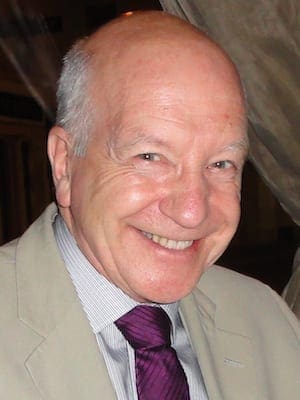The walled gardens at Drum Castle in Scotland are a favorite place for a reverie, though it’s hard to have a reverie these days.
Our minds aren’t accustomed to the mental spaciousness, lapse of productiveness and reorientation focus necessary for those episodes of creative restfulness and restful creativity.
Walking on paths laid centuries ago, in a garden with historic borders and beds of old scent-laden roses, and provided with a number of features intended to rest the mind and slow the body, I reach for that word: reverie.
Though important, this word has been rendered obsolete by frantic lifestyles, fueled by acquisitive habits, driven by dissipated attention, sustained by conveyor belts of desire-induced credit and hostile to a use of time that is neither work, nor entertainment, nor retail activity.
Reverie is to allow ourselves the freedom to notice, to be patient with and to feel this body that walks, talks and works, to remember rhythms of thought and movement that are respectful of place and time.
Reverie isn’t so much a time of thinking as a time of openness to thinking about the present, as a requirement of being open to the future and of not foreclosing on our past.
Reverie is an imagination-friendly environment, a space hospitable to thoughts however weird, wonderful or wide of the marks of the norm.
Reverie happens when we are not limited by here and not constrained by now, but when we are presented with the gift of wondering what it is like to be who we are, and to accept who we are without judgment, expectation or disappointment.
Reverie is prayer if it is some or most of these things because we are made in the image of a God who created for six days, and at the end of each day looked with critical appreciation and saw that it was good.
We are made in the image of a God who at the end of the six days looked with critical appreciation and saw that it was very good, and then rested.
The Sabbath of God was a time of creative reverie – God rested, wondered, waited, allowed to be.
I wonder how much more effective Christian mission and activity would be if we rehabilitated the practice of inner Sabbath: reverie.
What would it do to our church programs of discipleship, worship, mission and service if they arose out of a community comfortable with periods of critical appreciation, creative reverie, a wondering and waiting that was open to the present and therefore open to a different future?
One of the characteristics of the first Christians was their joy. Luke describes those days after the resurrection as times when the disciples disbelieved for joy (see Luke 24:41). Paul lists joy immediately after love and before peace as fruits of the Holy Spirit.
My point? The word reverie comes from obsolete French meaning rejoicing, revelry, and is from “rever,” meaning delirious.
Now whatever else Christians have been accused of by the society they categorize as secular, we haven’t been overburdened with charges of excess joy.
Maybe that’s because there is insufficient value placed on Christians modeling a way of living in which reverie, creative wondering and imaginative care for the world, is an intentional way of being in God’s world.
For Christians alert to the world around them, reverie is the disposition out of which comes redemptive gestures, out of which grows a spirit of reconciliation, and within which grows a community in love with the world God made, in which God became incarnate in Christ, which God loves into new life and new creation, and into which we are sent as revelers of the kingdom.
 James Gordon is part-time minister of Montrose Baptist Church in Angus, Scotland, and the former principal of the Scottish Baptist College. He is on the advisory board of the Centre for Ministry Studies, University of Aberdeen, and continues as an occasional lecturer on practical theology and areas of ministry. A version of this article first appeared on his blog, Living Wittily, and is used with permission.
James Gordon is part-time minister of Montrose Baptist Church in Angus, Scotland, and the former principal of the Scottish Baptist College. He is on the advisory board of the Centre for Ministry Studies, University of Aberdeen, and continues as an occasional lecturer on practical theology and areas of ministry. A version of this article first appeared on his blog, Living Wittily, and is used with permission.
Part-time minister of Montrose Baptist Church in Angus, Scotland, and the former principal of the Scottish Baptist College. He is on the advisory board of the Centre for Ministry Studies, University of Aberdeen, and is honorary lecturer in the School of Divinity, History and Philosophy.

